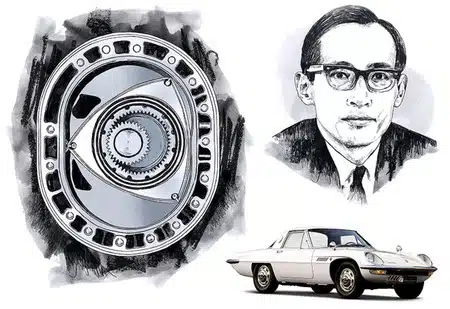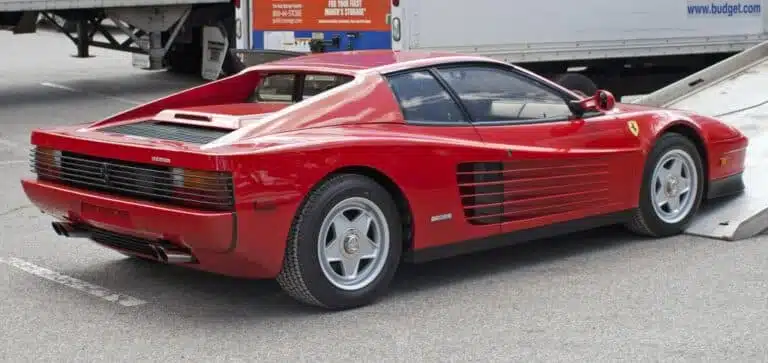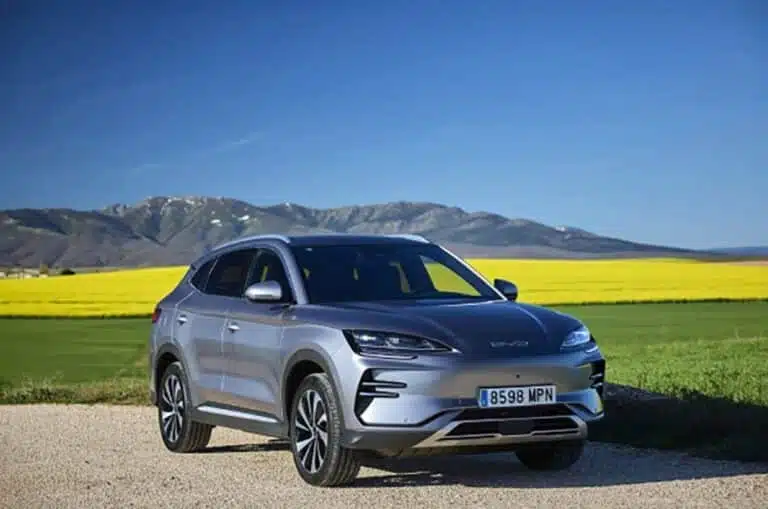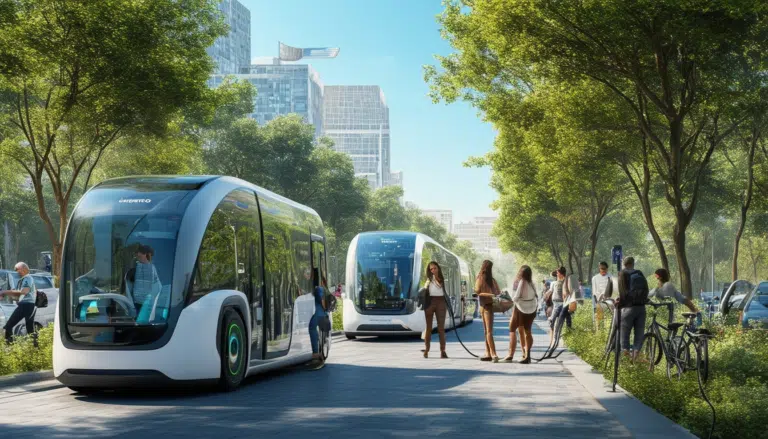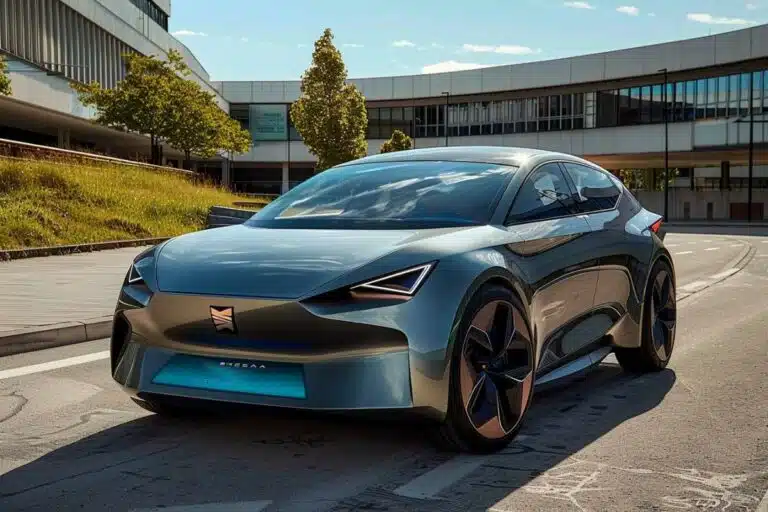Se confirms: the 4-cylinder engine of the Mercedes-AMG plug-in hybrid says goodbye, and the V8 also bids farewell
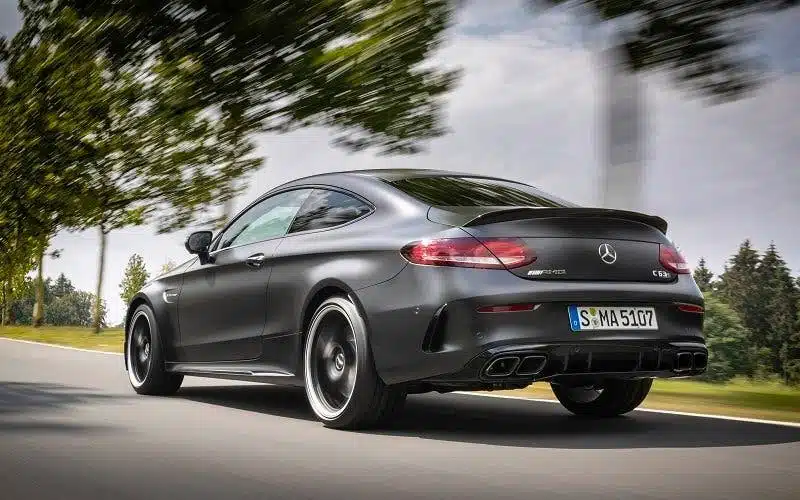
The world of motorsport is preparing for a new era with the Mercedes-AMG C63 which, in an unexpected twist, will see its plug-in hybrid four-cylinder engine bid farewell. However, traditional V8 enthusiasts should not celebrate too soon, as this iconic engine is also saying goodbye, being replaced by a inline six-cylinder. This transition marks an important step in Mercedes-AMG’s evolution, as it seeks to balance performance and sustainability while attentively listening to its users and their changing expectations.
The Mercedes-AMG C63 will face significant changes with the removal of its 4-cylinder plug-in hybrid engine. Although the reintroduction of the V8 had been anticipated, Mercedes opts for an inline six-cylinder engine, leaving behind both the V8 and the 4 cylinders. This move surprises in a market that expected the return of the V8 after the disinterest in the current engine.
The farewell to the four cylinders
Recently, Mercedes-AMG confirmed that the 4-cylinder plug-in hybrid engine, which had been a novelty in 2022, will be replaced. This engine, a 2.0 liters turbocharged by an electric turbo and combined with an electric motor on the rear axle, was capable of developing a combined power of 680 hp. However, the sales of the model did not meet expectations in key markets for the brand.
The uncertain return of the V8
After seeing prototypes of Mercedes AMG CLE with a V8 engine at Nürburgring, speculation arose about a possible return of the iconic engine to the C63. However, Mercedes has announced that the C63 will not feature the 4.0-liter twin-turbo V8 again. Despite this, in other parts of its range, the V8 will continue to exist, complying with Euro 7 regulations.
A new six-cylinder engine
Instead of returning to the V8, the C63 of 2026 will be equipped with an inline six-cylinder engine and 3.0 liters, framed also in a plug-in hybrid system. This configuration is an evolution of that used in AMG models like the E53, but with greater power and torque. This change might be an attempt by AMG to rekindle the interest of buyers, who showed resistance to the four-cylinder PHEV.
The impact on consumers
The decision to switch from a four-cylinder plug-in hybrid engine to a six-cylinder one could reflect Mercedes’s recognition of consumer preferences. Although the current model offered advanced technology and high performance, the higher price compared to competitors like the BMW M3 may have contributed to its underperformance in sales.
The legacy of the V8
The impact of Mercedes-AMG’s decision to reduce the number of cylinders in the C63 was felt in the market. The same company’s executive acknowledged that the loss of the V8 alienated some customers. Meanwhile, AMG continues to develop a “electrified V8 of a new generation,” hoping to attract again the clientele that values this characteristic engine of the brand.
To learn more about bets and changes in the automotive industry, check out this article, or discover how not to make mistakes when choosing the perfect sports car at this link.
The future of engines at Mercedes-AMG
The automotive world is in a phase of transition that affects all brands, including Mercedes-AMG. The confirmation that the 4-cylinder engine of the plug-in hybrid is saying goodbye, along with the farewell of the iconic V8, marks a significant change in the brand’s engine strategy. These decisions reflect an adaptation to new emission regulations and the need to innovate in an increasingly competitive market.
The C63, emblematic model of the German company, has been a subject of debate regarding its engine. The option of an inline six-cylinder engine promises an improvement in performance and market acceptance, a decision that responds to the low demand for the previous PHEV system that failed to capture the expected interest. This evolution not only affects the C63 but is also expected to extend to other models like the renewed GLC 63 in 2027.
The ambivalence generated by the choice of engines for established brands like Mercedes-AMG lies in finding a balance between innovation and the expectations of their classic customers. The loss of some customers due to the abandonment of the V8 is a reminder that legacy and evolution must walk hand in hand. The commitment to maintain and develop a new V8 engine that meets the strictest regulations indicates that the brand seeks to maintain that emotional connection with its audience.
In conclusion, the confirmation of these decisions not only underscores a change in AMG’s engine strategy but also a promise of constant innovation in the automotive field. In a landscape where technology and regulation set the path, Mercedes-AMG seems to be taking cautious steps towards a future that respects both the rules and the emotions of its loyal followers.

